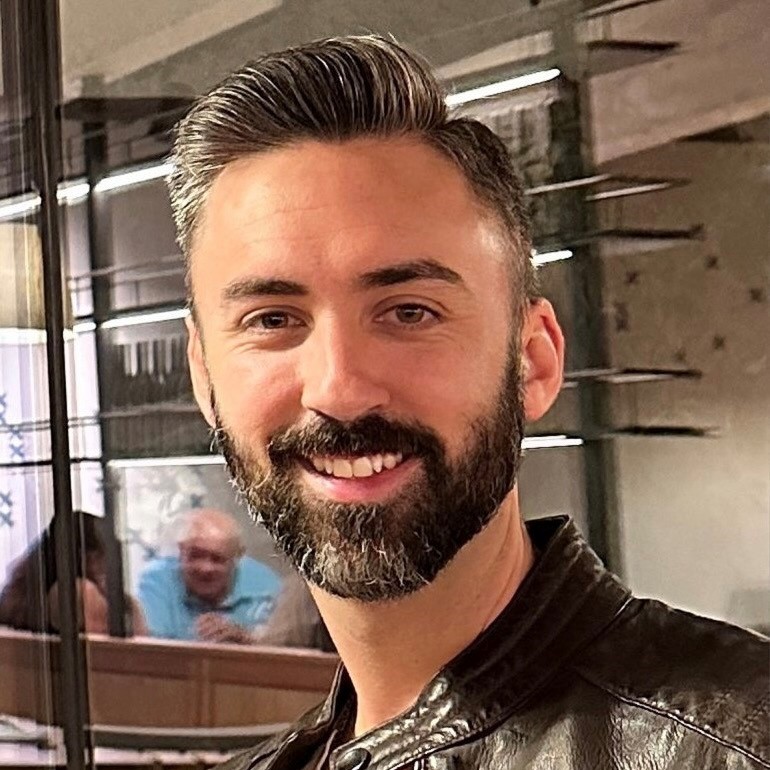Alzheimer’s Disease
special focus
Alzheimer’s Disease
online
What to expect
Alzheimer’s Disease (AD) is a progressive neurodegenerative disorder that increasingly burdens patients, caregivers, and healthcare systems. Radiologists play a crucial role in the diagnosis and monitoring of AD, primarily through the use of advanced imaging modalities such as MRI and PET scans. However, significant gaps and barriers exist in the current training and practices of radiologists, which need to be addressed to improve patient outcomes.
This course combines evidence-based educational strategies with flexible, accessible delivery methods to create an engaging, learner-centred experience. By integrating interactive elements, real-world application, and opportunities for learner influence, the course ensures that participants not only acquire knowledge but also develop the skills and confidence to apply it in their clinical practice.
Renowned European experts ensure a high quality-teaching programme
combining theory and case presentations with an interactive character.
more information and programme coming soon
hosts & venue

Mike Walt, MA
Leadership, Team Effectiveness & Communications Coach
Venue will be announced soon!
- BA in Communications | MA in Organizational Leadership
- Certified 6 Team Conditions Coach & Team Diagnostic Survey Administrator
- Certified Neethling Brain Instrument (NBI) Coach
- Certified Lead, Develop, Care (LDC) Coach

Assoc. Prof. Dr Helmut Prosch
Section Chief of Thoracic Imaging at Medical University of Vienna
Venue will be announced soon!
- Experienced lecturer and educator with over 1500 talks delivered in more than 40 coutries
VENUE
Medical University of Vienna
Radiology Center
Lazarettgasse 25
1090 Wien

Accreditation
Applications will be made to the European Accreditation Council for Continuing Medical Education (EACCME) for CME accreditation of this event.
The ESOR Visiting Professorship to Ukraine has been accredited by the European Accreditation Council for Continuing Medical Education (EACCME®) for a maximum of 10.0 European CME credits (ECMEC®s)
Certificates with CME credits will be issued only after participating in the course activities and completing an online evaluation form.
Participation in both course days is a requirement to receive CME credits.
We work with impartiality and transparency. Find the steering committee disclosure forms here →
Learning Objectives
Understand diagnostic methods and biomarkers
Be updated on the use of advanced imaging tools
- Be familliar with the use of MRI and PET scans in the treament of Alzheimer’s Disease.
Understand the importance of monitoring of Anti-Amyloid Treatment effects
course structure
Small group for the big impact
This course is limited to 16 participants to ensure low instructor-trainee ratio
Pre-course online meeting
An online video call will allow to get to know eachother, set the expectations for the course and assign pre-course tasks for participants
Hands-on training in Vienna
You will meet in-person for a two-day intensive training with interactive tasks, constrictive feedback and self-reflection activities
Post-programme follow-up call
One-month after the course in Vienna you will have a follow-up video call with instructors
Programme
*all times given in local time in Astana
| 12:30 – 12:50 | Clinical Presentation and diagnosis of AD Giovanni Frisoni |
| 12:50 – 13:10 | Pathophysiology of AD Laura Molina |
| 13:10 – 13:30 | Epidemiology and Risk Factors Frank J Wolters |
| 13:30 – 13:50 | Q&A session |
| 13:50 – 14:30 | Physiological and radiological changes of brain ageing Meike Vernooij |
| 14:30 – 15:10 | How to report a CT or MRI study in cognitive decline Myriam Edjlali-Goujon |
| 15:10 – 15:30 | Q&A Session |
| 15:30 – 16:00 | Break |
| 16:00 – 16:40 | Role of PET Biomarkers in the diagnosis of demencias Javier Aribizu |
| 16:40 – 17:20 | Clinical Features and Differential Diagnosis of Dementia Syndromes Giovanni Frisoni |
| 17:20 – 18:00 | Neuroimaging Features in vascular dementia and other degenerative Dementias Nuria Bargallo |
| 18:00 – 18:30 | Q&A Session |
*all times given in local time in Astana
| 12:30 – 13:10 | Advanced MRI Techniques in AD (Functional MRI (fMRI) Diffusion Tensor Imaging (DTI, ASL) Sven Haller |
| 13:10 – 13:50 | Quantitative MRI and the use of AI Algorithms for Image Analysis and Diagnosis of AD Dennis Hedderich |
| 13:50 – 14:30 | Current and Emerging Therapies for AD Giovanni Frisoni |
| 14:30 – 15:00 | Q&A session |
| 15:00 – 15:30 | Break |
| 15:30 – 16:10 | Amyloid cerebral angiopathy Grégory Kuchcinski |
| 16:10 – 16:50 | Side Effects of New Treatments: Amyloid-Related Imaging Abnormalities (ARIA) Frederick Barkhof |
| 16:50 – 17:30 | Organisation challenges of monitoring AD patients with the new treatments. Nuria Bargallo |
| 17:30 – 18:00 |
Fees
free of charge
For all radiologists, radiologists-in-training and radiographers, incl. those who are not yet members of the ESR.
the world of radiology is yours
Get inspired by our Scholar- and Fellowship programmes and find out where you will go next!
